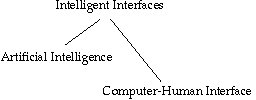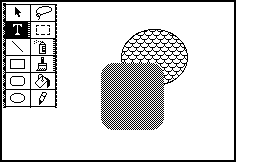
Henry Lieberman

Winston's definition of Artificial Intelligence:
"A program is intelligent if it does something that would require intelligence if a human did it"
Is there a "Turing Test" for interfaces?

Not every "good interface design" is an "intelligent interface"

* Interfaces are getting too complex
* Interfaces are too inflexible
* Interfaces don't change when our needs change
* Interfaces don't work with each other
* Interface can adapt to the needs of different users
* Interface can learn new concepts and techniques
* Interface can anticipate the needs of the user
* Interface can take initiative and make suggestions to the user
* Interface can provide explanation of its actions
* Rules
* "Frame" descriptions
* Discrimination networks
* Subsumption hierarchies
* Inference engine
* Associative memory
* Matching
* Autonomous agents
Some interfaces have "hard-coded intelligence"
Encode domain-specific knowledge
However, not explicitly represented
Intelligence resides in the "system" that consists of both the user and the computer
Every program is a "multiple-agent" system because there are at least two -- you and the machine
Issues of parallelism, synchronization, cooperation, initiative
How much intelligence does the system require on the part of the user?
Is there such a thing as an interface that is "too intelligent"?
Is the interface "as intelligent as it seems", or can it "fool" the user [for example, in the way the doctor program does]?
Is there some intelligence in the program that is not apparent in the interface?
* User "converses" with the machine as if it were a human
Graphical interfaces
* Intelligence in choices of what information to show
* Things that are similar should look similar, things that are different should look different
* Virtual reality
* Take advantage of intelligence of human visual processing
* Gestural interfaces
* How can interaction be made clearer and more efficient?
* How can interfaces offer better support for their users' tasks, plans and goals?
* How can information be presented more effectively?
* How can the design and implementation of good interfaces be made easier?
Serious interface problems are ultimately semantic problems
Serious semantic problems are ultimately interface problems
These problems cannot be solved through interface technology alone
* More bits, pixels, media
* Faster processors, networks
These problems cannot be solved through artificial intelligence techniques alone
* "Right" knowledge representation
* Big knowledge bases
* Clever inference techniques